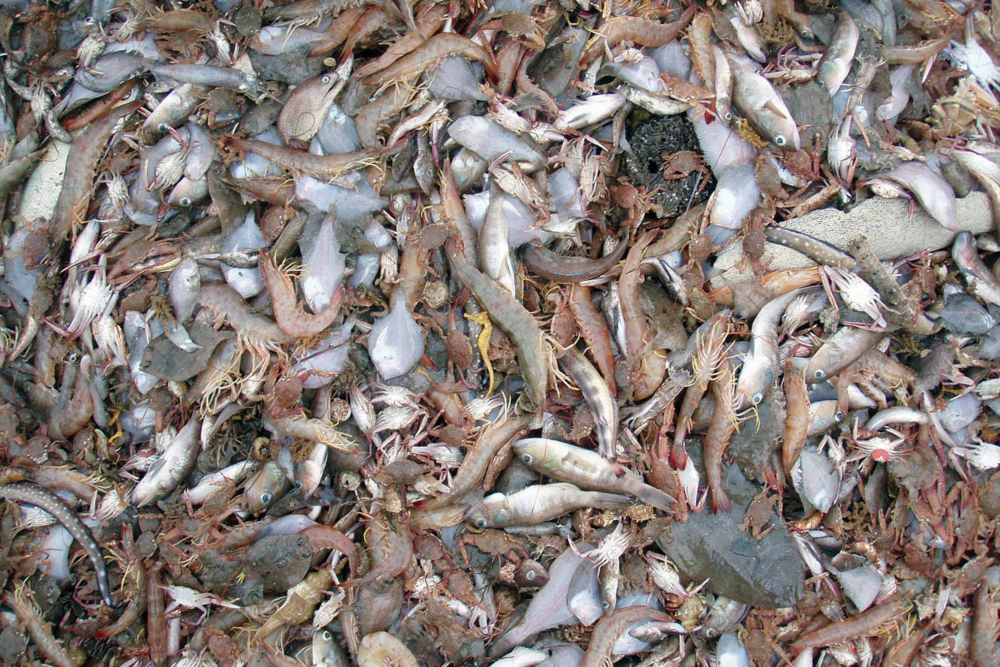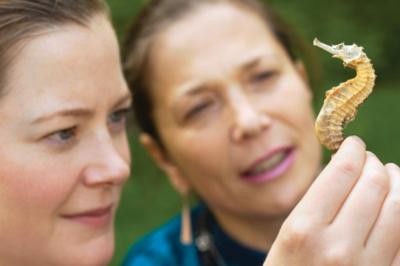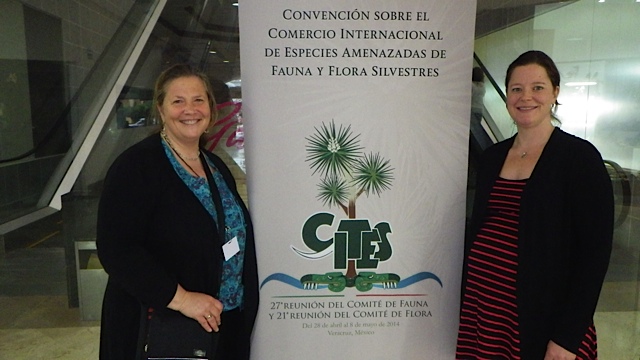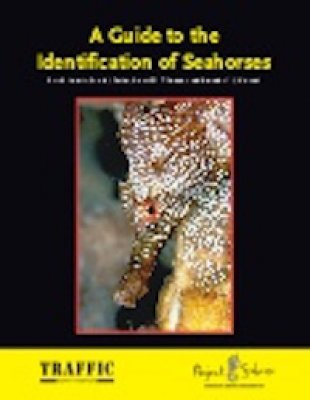
Dr Sarah Foster
National Manager, SeaChoice; Program Manager and Research Associate, Project Seahorse, SeaChoice; The University of British Columbia
Conservation scientist dedicated to finding pragmatic solutions for the many problems facing the oceans and the animals that call them home – solutions that work for both fish and the people that depend on them.
Media
Unsustainable shrimp a jumbo problem
UBC News, June 3, 2014Online
URL: http://news.ubc.ca/2014/06/03/unsustainable-shrimp-a-jumbo-problem/
Project Seahorse researcher Sarah Foster says most of the shrimp we eat are unsustainably harvested. For every kilogram of tropical shrimp caught through trawling the bottom of the ocean, 10 kilograms of other marine life is killed. To protect ocean health, Foster argues that we have to be smart about the shrimp we eat.
Trawling for B.C. prawns a threat
24 Hours Vancouver, June 3, 2014Online
URL: http://vancouver.24hrs.ca/2014/06/03/trawling-for-bc-prawns
B.C.'s spot prawn fishery is among the most sustainable in the world, according to one local scientist - but the trawling for two lesser-known species of shrimp is damaging to marine life. University of B.C. research associate Sarah Foster has been working with Project Seahorse, a marine conservation initiative that aims to save seahorses and other marine animals from man-made threats.
Shun shrimp that hasn't been sustainably sourced
Vancouver Sun, June 5, 2014Online
Each year around World Ocean’s Day, family and friends ask me what they can do to make a difference to the health of our oceans. My answer? Don’t eat shrimp or prawns unless you know they have been sustainably sourced. Most aren’t.
Using distribution patterns of small fishes to assess small fish by-catch in tropical shrimp trawl fisheries
Published by Animal Conservation
2014 17(3): 217-224.
URL: http://onlinelibrary.wiley.com/doi/10.1111/acv.12078/abstract
Trade in seahorses and other syngnathids in countries outside Asia (1998-2001)
Published by Fisheries Canada Research Reports
2011
Pragmatism before prescription for managing global fisheries
Published by Policy
2008 We applaud DR Griffith (Front Ecol Environ 2008; 6 [4]: 191–98) for addressing important fisheries management issues, but question the applicability of his solution (individual fishing quotas, IFQs) to the majority of the world's fishing effort. Griffith's IFQ success stories poorly ...
URL: http://onlinelibrary.wiley.com/doi/10.1890/1540-9295-6.10.523.b/full
Opportunities and challenges for analysis of wildlife trade using CITES data – seahorses as a case study
Published by Aquatic Conservation: Marine and Freshwater Ecosystems
2016 26: 154–172
URL: http://onlinelibrary.wiley.com/doi/10.1002/aqc.2493/abstract
Low bycatch rates add up to big numbers for a genus of small fishes
Published by Fisheries
in press
A Global Annotated Checklist of the Seahorses Hippocampus Rafinesque 1810 (Actinopterygii: Syngnathiformes): Taxonomy and Biogeography with Recommendations for Further Research
Published by Zootaxa
2016 4146(1): 001–066
URL: http://biotaxa.org/Zootaxa/article/view/zootaxa.4146.1.1
Biography
Sarah Foster currently serve as the National Manager of SeaChoice (www.seachoice.org), a science-based, solution-focused influencer, advocate and watchdog leading the next evolution of seafood sustainability in Canada. He role at SeaChoice is to do everything she can to ensure team members are well-supported. Her work is aligned programmatically and operationally, to achieve as much as possible for the health of our oceans. SeaChoice is a partnership of the David Suzuki Foundation, Ecology Action Centre and Living Oceans Society.
Sarah Foster has over 15 years of experience working with the international marine conservation organization Project Seahorse (www.projectseahorse.org) on issues related to sustainable fisheries and marine ecosystems, species at risk, and international wildlife trade policy. Since 2010, she has served as the Project’s Program Manager while holding a faculty level position at The University of British Columbia’s Institute for the Oceans and Fisheries. In this role, Foster has focused on finding pragmatic solutions for the problems facing our oceans and the communities that depend on them for their livelihoods. As Project Seahorse Program Manager, Foster's primary focus has been conservation projects toward sustainable fisheries systems, always in collaboration with communities of place and practice.
Foster's research and conservation work span the areas of trade and non-selective fishing practices. Using seahorses as a case study, she works to increase the effectiveness of the multilateral trade convention CITES in ensuring sustainable trade in wild fishes. This requires her to find ways to assess and address the impacts of non-selective fishing practices on seahorses and the thousands of other small fishes they catch.






